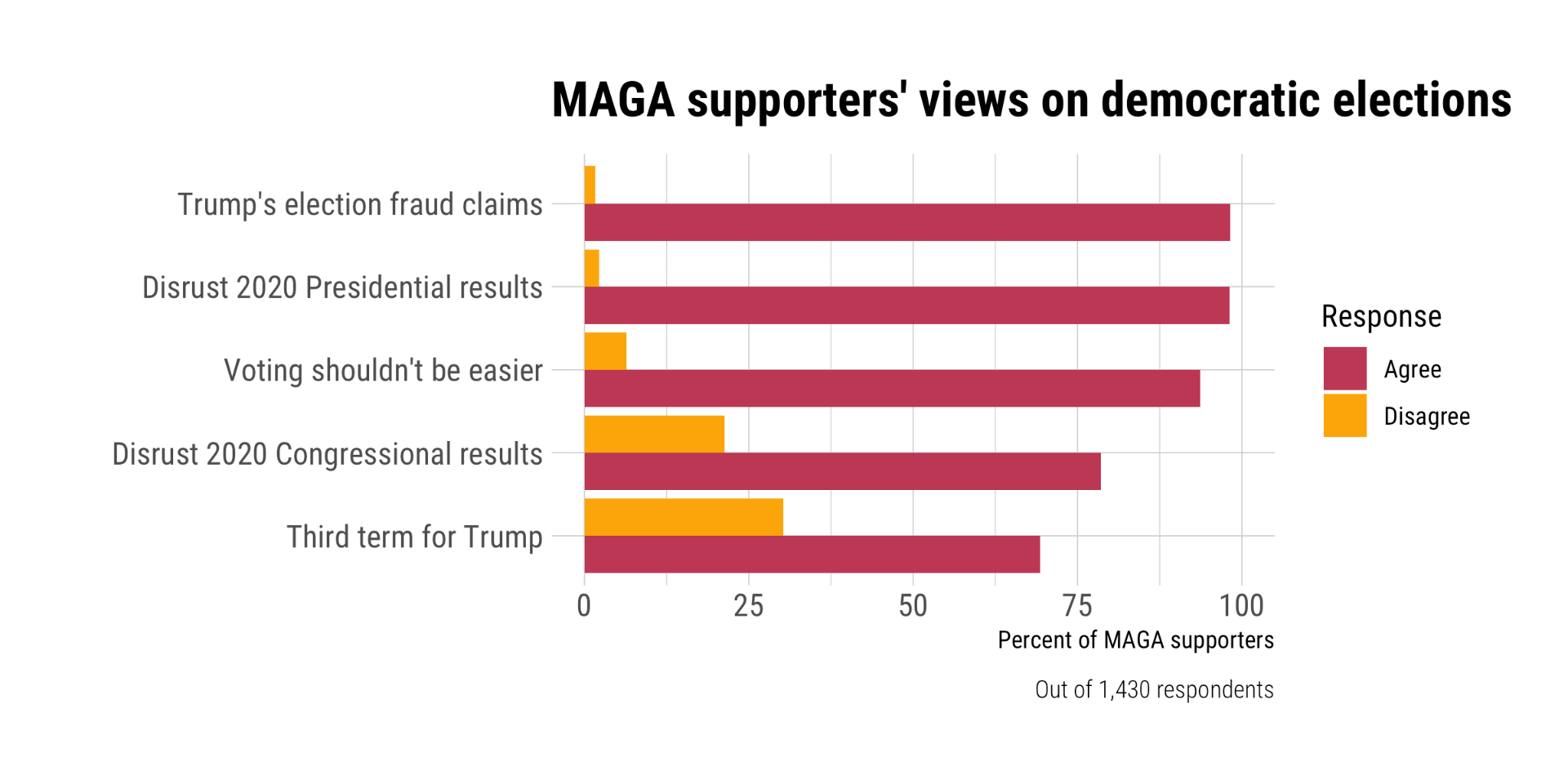Click on an image for a larger display
 |
 |
 |
 |
 |
If it seems that MAGA movement supporters are committed to the Republican Party, it’s because they are. Dating back to the 2016 presidential election, they’re firmly committed to the party, regardless of the election cycle. In Trump’s initial run for office in 2016, roughly 90 percent of MAGA supporters voted for him. Ever since then, including the 2018 midterm, MAGA supported the GOP at a 100-percent clip. Even though Trump lost in 2020, the commitment from MAGA suggests why he had coattails, narrowing Democrats’ advantage in the House. This aforementioned commitment to the GOP among MAGA supporters is easily understood in light of the partisan distribution: approximately 90 percent of MAGA supporters are self-identifying Republicans, or lean GOP. If, however, we didn’t press them, the “leaners” who first identified as Independent, comprise a total of 27 percent of the sample. Yet, both they, and the “pure” self-identified Independents who are MAGA movement members, overwhelmingly vote GOP.
Among other things, the PSMM includes a battery of questions on political activism beyond voting. Assessing political activism is important because it suggests the level of commitment to political engagement. We sought to explore the MAGA movement’s commitment to politics by asking a range of questions, from signing a petition to attending a rally. As the results indicate, the MAGA movement is energized. Consider that no less than 50 percent of the MAGA insurgency have signed a petition, contacted a representative, participated in a boycott, or donated funds to a campaign. Beyond that, roughly 45 percent attended a political meeting, 35 percent have attended a rally, and 30 percent have volunteered for a campaign. By any metric, this group appears committed to the political process. (Since national data for the 2020 election cycle is not yet available, we can’t yet compare these numbers to those of the general public.)
Turning to perceptions of the 2020 election cycle, we find that the MAGA movement refuses to accept the election results. We assess this in a number of ways, from survey questions that invoke fraud claims made by Trump, to perceptions of the congressional elections. When we asked our respondents about whether or not they agreed with Trump’s fraud claims, 98 percent believed them valid. We then asked, absent Trump’s claim, whether or not they trusted the election results. Again, 98 percent of respondents distrust the results. However, when we shift to perceptions of the congressional elections, the attitudes move a bit. Instead of 98 percent who take issue with the election outcome at the presidential level, distrust of the down-ballot (congressional) results decline by roughly 20 percentage points to 78 percent. The disparity between our findings on the first two questions, and the last one, suggests that movement members are less upset with gains made in the House versus losing (illegitimately) the presidency. We were also curious about other issues surrounding the 2020 election cycle: attitudes surrounding making it easier for people to vote, and if they’d support Trump for a third term. Recall that, at the time the first wave was in the field, the outcome of the election remained in doubt. In response to the first question, roughly 90 percent of our respondents disagreed with making it easier for people to vote. Replying to the second, it’s clear that, were it possible, roughly 70 percent would’ve supported Trump for a third term.